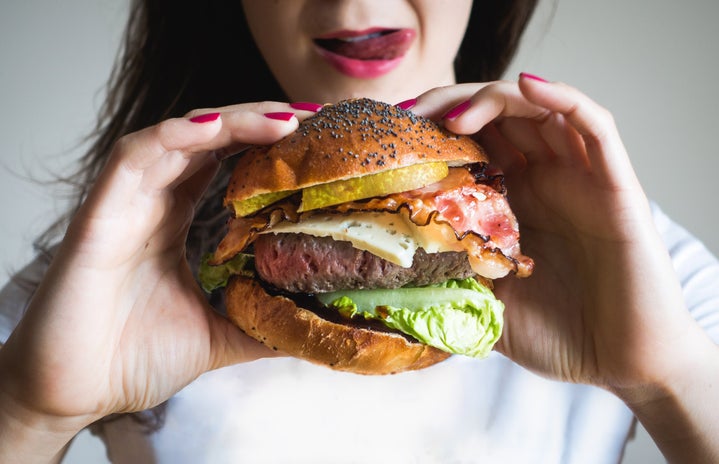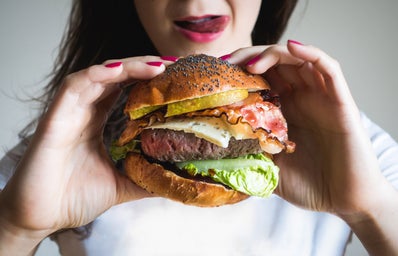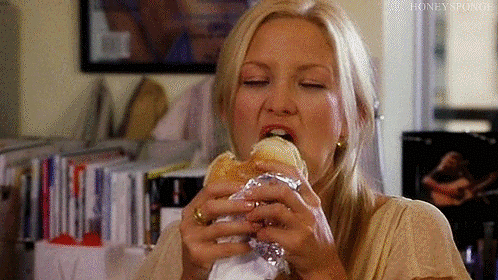My TikTok For You Page is filled with people eating. And cooking. But mostly eating. It’s an endless stream of gluttonous mukbangs, creations of snack platters and charcuterie boards, and the ones with the most views which are of food content creators bringing hot plates into their cars, covering a Chipotle burrito in hot chip crumbs, frying it, and eating it all from the front seat of their car.
I find these videos fascinating and pleasing, although I don’t quite understand why. All of these videos typically appeal to fans of ASMR (Autonomous Sensory Meridian Response), utilizing the crunching, sizzling, and slurping of their food. It’s been compared to a “brain massage” and almost makes you feel like you too are biting into that burrito and sipping on a crisp Coca-Cola. But I’ve never had a strong reaction to these noises, sometimes they even gross me out. So I figured there must be more to these phenomena than watching and listening to people eat.
Mukbangs have always been alluring to viewers because they traditionally include someone eating more food than an ordinary person would consume in a day. Consumers, in more ways than one, flock to these videos out of satisfaction as well as fascination about how it’s possible for the creator to eat so much in one sitting (we come to realize there are probably lots of cuts in the video and people behind the camera taking bites).
But before there were mukbangs on YouTube, there were cooking competition shows. We love to watch Guy Fieri drive around in his convertible, eating around the country, because we like to see his reaction while tasting all kinds of new dishes. People tune in to those shows to see Gordon Ramsay’s facial expressions as he brings his fork to his lips and declares a meal either “rubbish” or “bloody excellent.” Through a screen, most of our senses are unable to identify a meal as good or bad, sweet or salty, crunchy or soft. Therefore, we want to know what Gordon and Guy think of the meal in front of them while we idly sit back and relax.
A Wired article titled “Why Can’t I Stop Watching Food Videos While I Eat” says “[Our brain] fantasizes…it calculates how energy dense the steak is and simulates eating it. Anticipation is everything.”
In the same article, Charles Spence, a professor of experimental psychology at the University of Oxford, said “The actual flavor is not as important as we might imagine – it’s the anticipated flavor.” When we see food, blood rushes to our brains but once we have our first bite, the brain deactivates and is no longer interested in the same way. With food videos, this reaction is prolonged. The suspense builds and our brain, unable to satiate itself with actual food, holds interest.
It’s not necessarily a bad thing to be enthralled by these videos. If you’re watching them out of curiosity about the eating habits of others, the satisfaction of eating ASMR, or because you enjoy watching people eat while you eat, this is a relatively common phenomenon. There is no doubt that these videos are equally fascinating, satisfying, silly and raking in thousands, if not millions of views, by a variety of creators. And as long as we’re watching, they’ll be eating.



